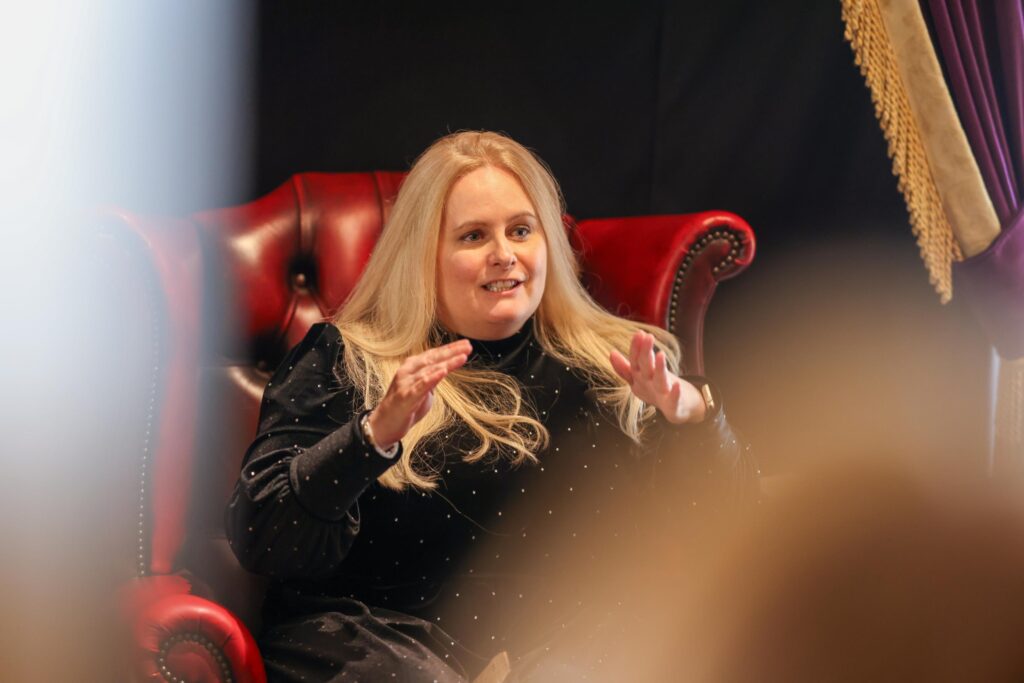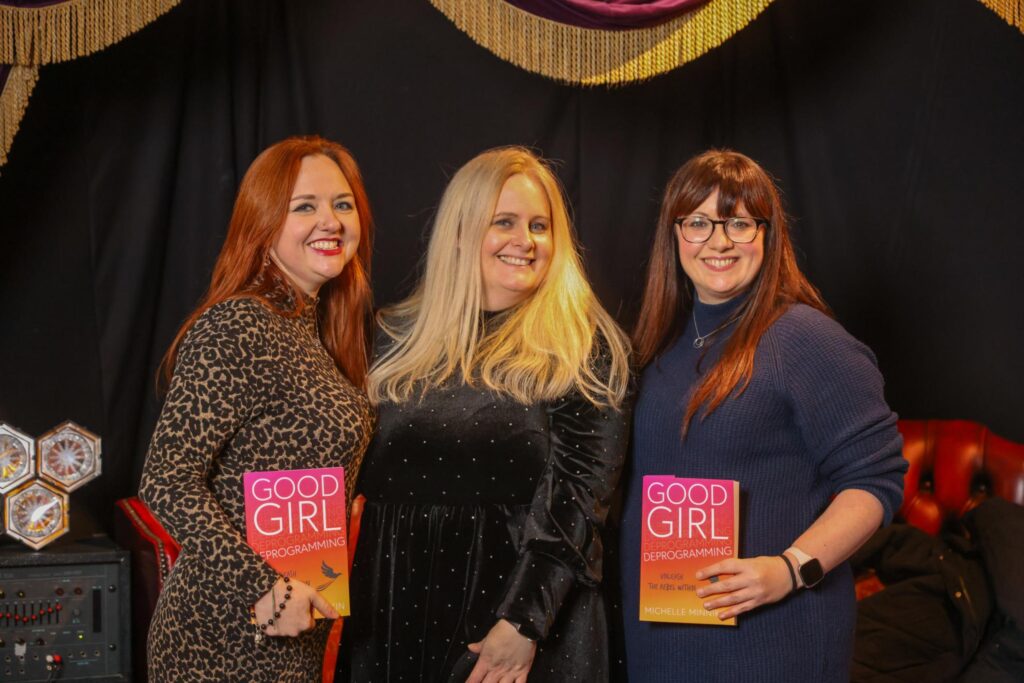
I started researching and writing my first book, Good Girl Deprogramming, in 2019 after 20 years as an organisational psychologist (a psychologist for businesses and their people).
I’d seen many ways in which women struggled to find their place, assert their authority, and be recognised for their expertise — I saw it too frequently and with too many similarities to ignore.
My first step was to start listening; I spoke to hundreds of women while writing the book. I found that alongside the issues coming up in the workplace, women’s home lives were also taking their toll. The circumstances were different, of course, but the outcomes were similar.
They experienced exhaustion from bearing the brunt of caring responsibilities, carrying the mental load of running a household, being the ‘default parent’, and losing themselves as they tried to be everything those around them needed at home, work, or both.
Why are so many women trying to be everything to all people?
This question ran through my mind as I started putting pen to paper (or fingertips to keyboard) when I began writing in earnest towards the end of 2019.
I wanted to keep that question open, so whilst the book had to be written, so I kept asking women about their experiences. I created a research tool of 72 multiple-choice questions, available free online, to add data to the individual stories I’d heard during my research phase.
In the last six months, more than 1,400 women have completed this online quiz, and the results not only support the qualitative data overall but are starting to raise some alarm bells for me.
Women feel as though they don’t belong and can’t express themselves in their work and home lives; broadly, there is a feeling of continuously putting the needs and expectations of others before their own needs or goals.
- Read more: Talented writers take centre stage in Live Theatre’s new season
- Read more: Kate’s homecoming is headline news
In my book, I attribute this to the social conditioning women are put through from a very young age, the expectation of being both everything and nothing, a daunting and impossible task. This small excerpt from one of the stand-out scenes of the Barbie movie (dir. Greta Gerwig) crystallises this idea.
“You have to be thin, but not too thin. And you can never say you want to be thin. You have to say you want to be healthy, but also you have to be thin. You have to have money, but you can’t ask for money because that’s crass. You have to be a boss, but you can’t be mean. You have to lead, but you can’t squash other people’s ideas. You’re supposed to love being a mother but don’t talk about your kids all the damn time. You have to be a career woman but also always be looking out for other people.”
In trying to be everything to everyone, women are finding themselves adrift.

Women don’t feel like they belong anywhere
Loneliness at work and at home: I sometimes feel lonely or disconnected, even when surrounded by others.
From the 1,424 responses to my online quiz, a staggering 81% of respondents agreed with the above statement.
These results highlight to me the complex pressures placed on women that leave us feeling adrift, misunderstood, and unsupported.
Feeling like we don’t deserve to be in the spaces we occupy: 75% of women say they’ve experienced imposter syndrome at work.
This statistic is from a KPMG study, which reports that three out of every four women feel they don’t belong or don’t deserve their place at work.
When I shared this statistic on LinkedIn recently, a response was, “75% is so high, yet I feel like that’s also low. Almost every woman I talk to has it or has experienced it…”
A similar question with my respondents suggests two-thirds (66%) of women feel this way. Regardless of their ‘achievements’, many women still struggle with feelings of inadequacy and fear being exposed as frauds. This internal battle significantly impacts our self-confidence and mental well-being, compromising our sense of belonging.
You have to be a boss, but you can’t be mean. You have to lead, but you can’t squash other people’s ideas. You’re supposed to love being a mother but don’t talk about your kids all the damn time.
Women are losing themselves to social expectations
Feeling that our needs aren’t important: 80% of women say they regularly prioritise others’ needs over their own.
It’s no secret that many people, especially women, are socialised to be nurturing and self-sacrificing. But constantly putting others first leads to burnout, resentment, and disconnection from our loved ones.
Struggling to keep up with expectations: 77% say they’re regularly overwhelmed and exhausted by the responsibilities and expectations
It’s concerning to see such a high percentage of women feeling drained and depleted by their obligations at home, at work and in their social lives.
The constant need to juggle multiple roles and meet high standards is taking its toll.
And amid all this, time for us is squeezed. Essential time to learn, grow, have fun, participate in hobbies, hang out with friends, or have a guilt-free rest is almost non-existent.
What does it all mean?
#InspiringInclusion is the theme for this International Women’s Day, and it seems we’ve got to rapidly turn our attention to the inclusivity (or lack of) of places, systems, institutions, or cultural norms pushing women into isolation, burnout and distress.
Of course, there are many things individuals can do for themselves — mentoring, support programmes, coaching, actively checking in on your female friends, even picking up a copy of Good Girl Deprogramming (!) but much of this relies on privilege, good health, wealth and the abundance of free time.
If we really mean to inspire inclusion, then that means collective change — yes, it’s hard and takes time, but we owe this to all women and girls.
A future where four in every five women feel alone and unable to prioritise their own needs is no future at all.
- Michelle Minnikin is a North East-based Chartered Organisational Psychologist, speaker and author of Good Girl Deprogramming, available now from all good bookstores.

Gateshead College has nearly 8,000 students – that could fill Newcastle Theatre Royal seven times over. They come from 56 countries, which represents almost a third of the countries in the world.










